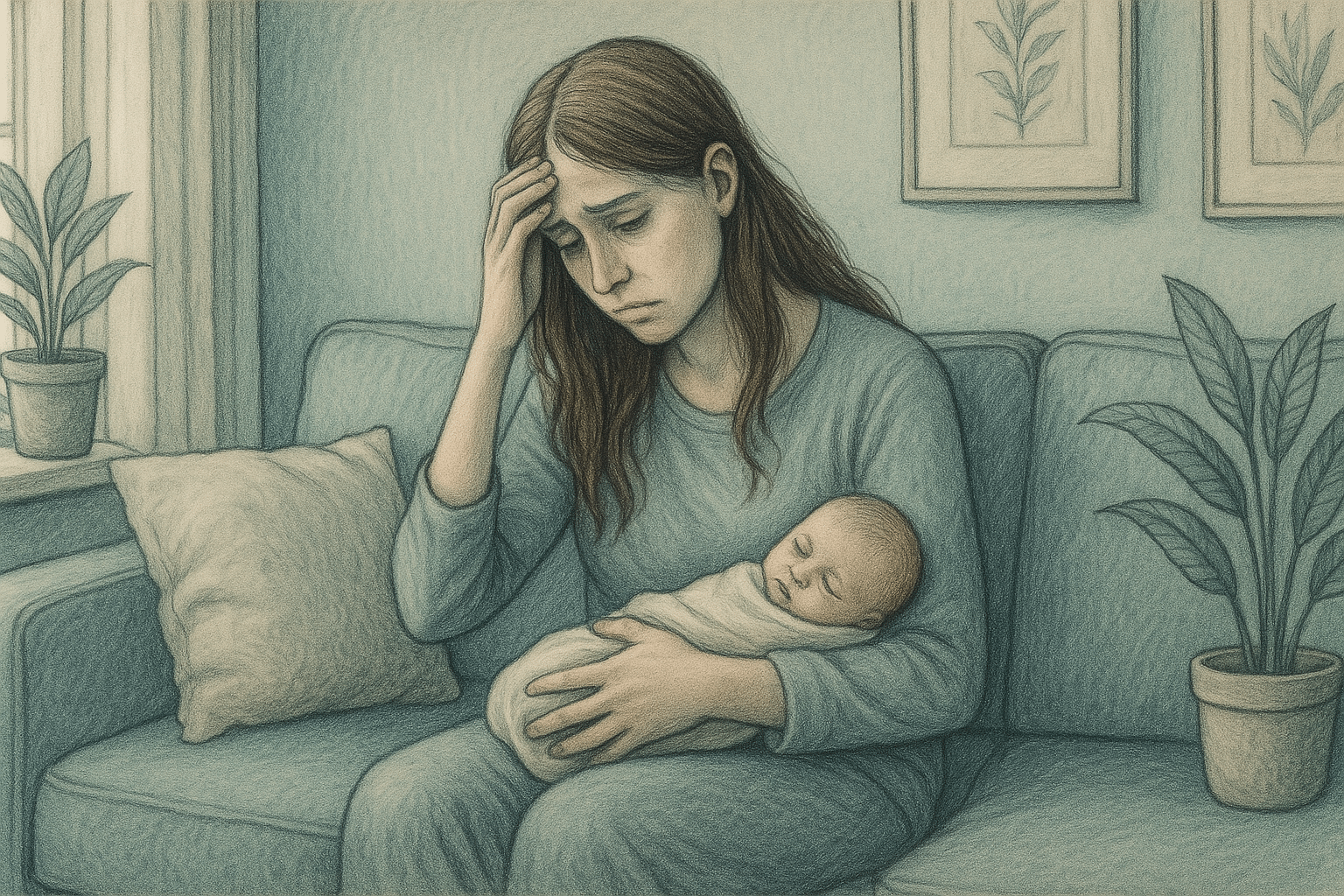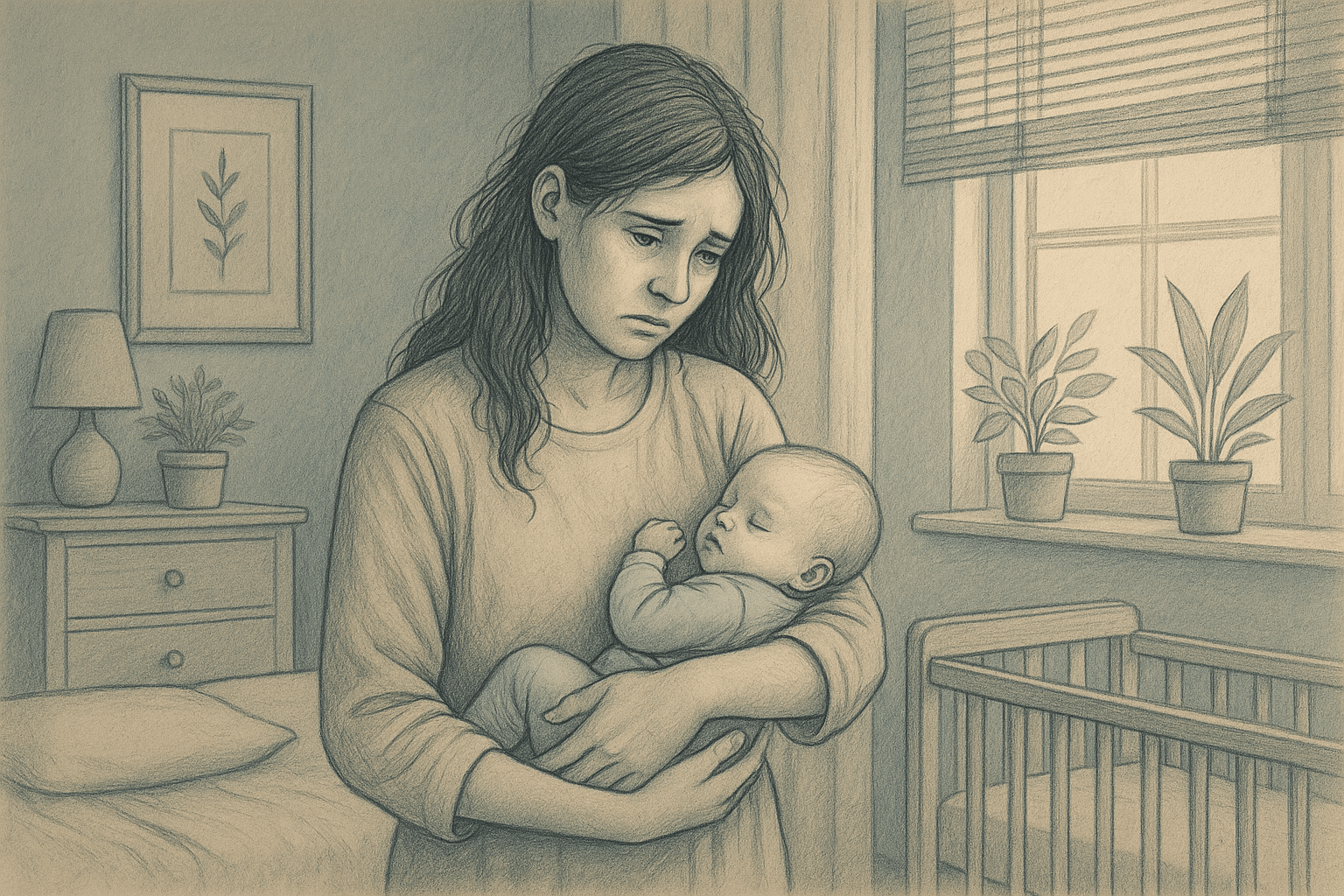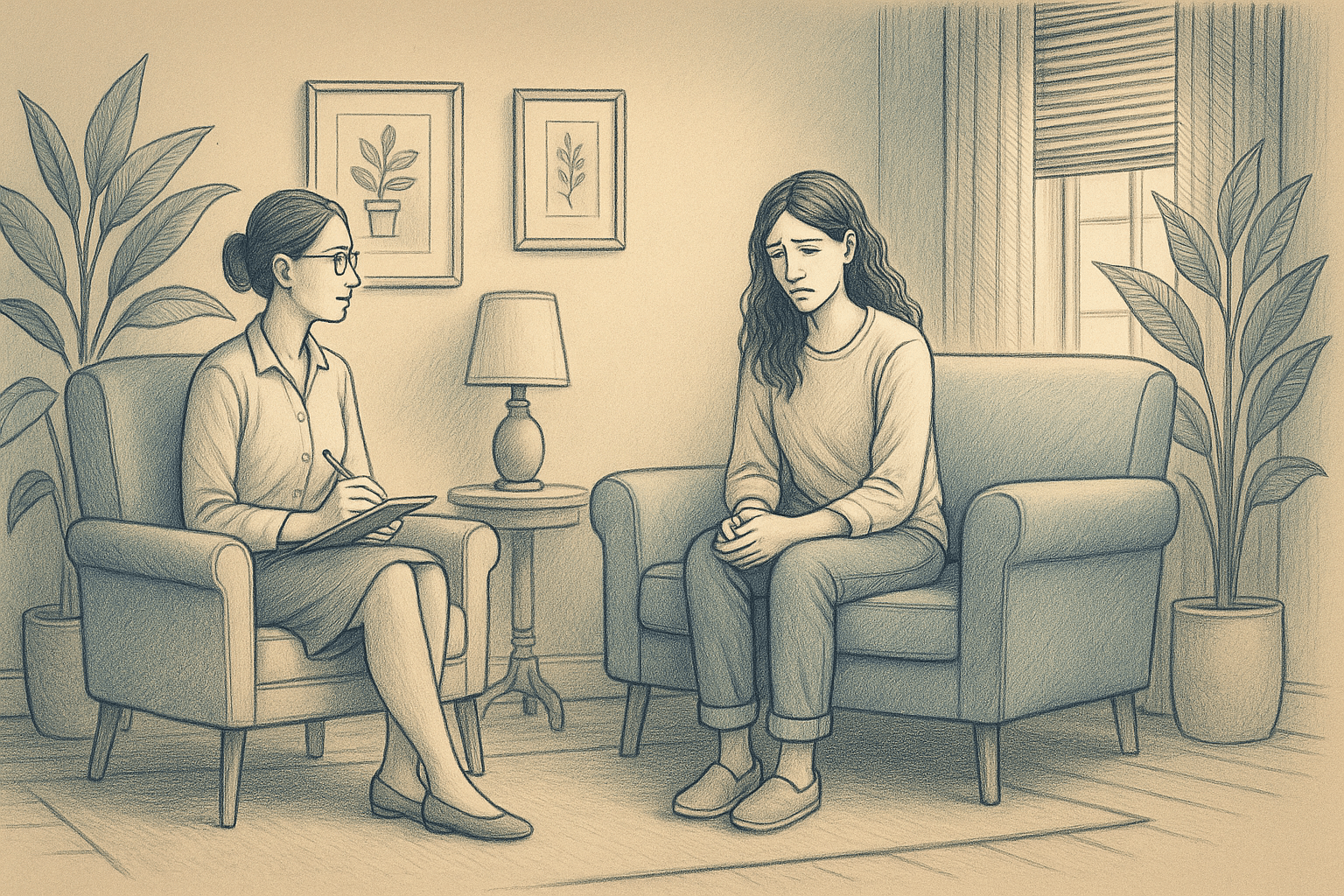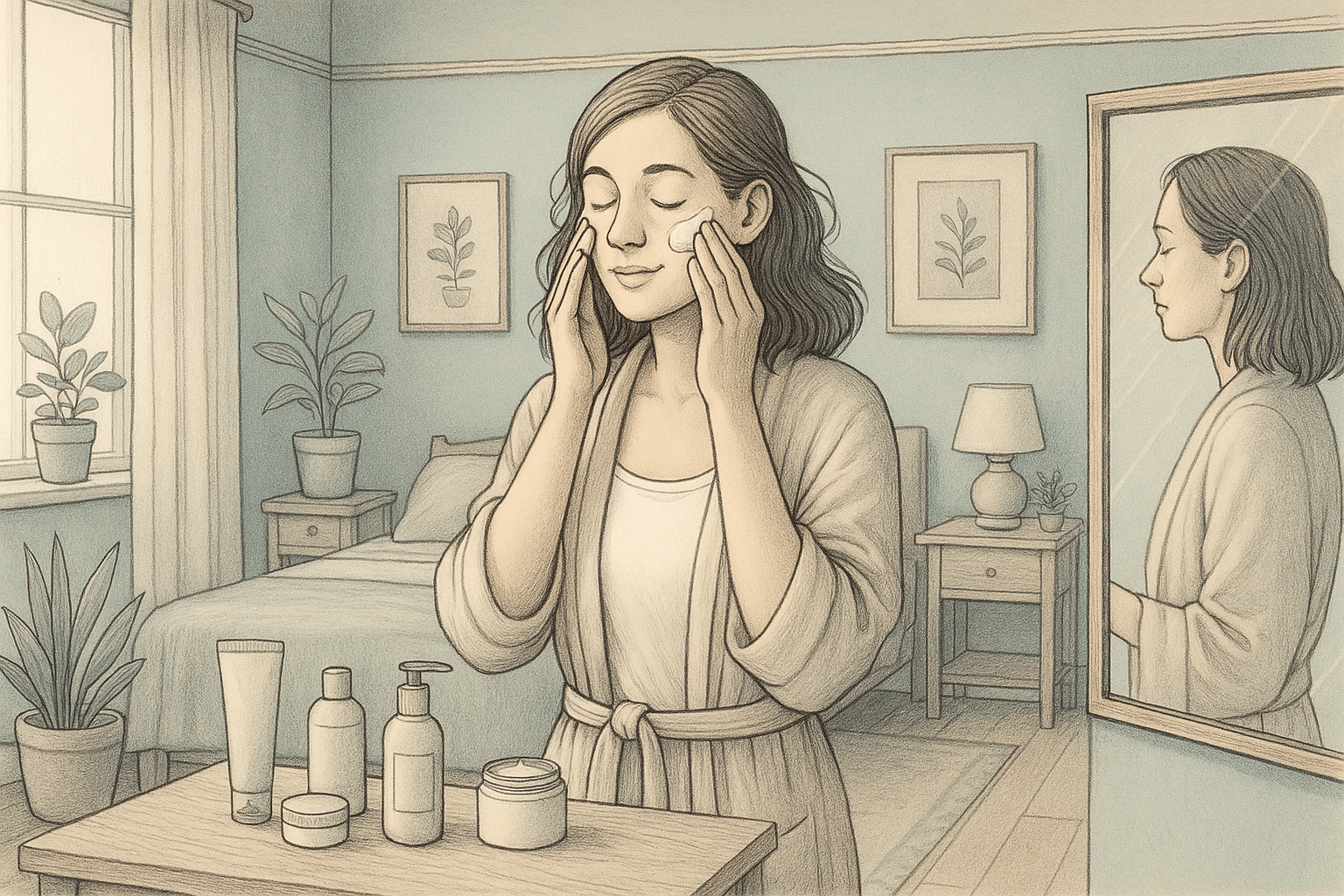Key Takeaways
- Baby blues affect up to 80% of new mothers, often starting a few days after birth and resolving within two weeks, while postpartum depression (PPD) is more severe and can last for months.
- Key differences include intensity and duration—baby blues involve mild mood swings and crying spells that resolve naturally, but PPD symptoms are more severe, persistent, and significantly interfere with daily functioning.
- Warning signs that baby blues may have progressed to postpartum depression include symptoms lasting beyond 2 weeks, intense feelings of hopelessness, and difficulty bonding with the baby.
- Early detection and treatment of PPD are crucial for the well-being of both the mother and baby.
- A Mission For Michael (AMFM) offers specialized treatment for postpartum depression with comprehensive programs including therapy approaches for new mothers, medication when necessary, and flexible care options that support the mother–infant relationship.
Postpartum Challenges Explained
Welcoming a new life into the world is a joyous occasion, yet it can also bring about significant emotional and physical changes. For many mothers, these changes can lead to mood disturbances such as Post Partum Depression (PPD) and baby blues. Understanding these conditions helps in addressing them effectively.
Impact of Hormonal Changes
Hormones play a pivotal role in postpartum mood shifts. After delivery, levels of estrogen and progesterone drop rapidly, which can trigger mood changes. Additionally, thyroid hormone levels may also decrease, leading to fatigue and depression-like symptoms.
Importance of Early Detection
Identifying the signs of baby blues and PPD early allows for timely intervention, which can prevent symptoms from getting worse. Additionally, it can help safeguard the mother’s mental health so that she can give her baby the care they need.
| A Mission For Michael: Expert Mental Health Care Founded in 2010, A Mission For Michael (AMFM) offers specialized mental health care across Southern California, Minnesota, and Virginia. Our accredited facilities provide residential and outpatient programs, utilizing evidence-based therapies such as CBT, DBT, and EMDR. Our dedicated team of licensed professionals ensures every client receives the best care possible, supported by accreditations from The Joint Commission and the California Department of Health Care Services. We are committed to safety and personalized treatment plans. Start your recovery journey with AMFM today! |
Understanding Postpartum Depression
Postpartum depression (PPD) is a serious mood disorder that can affect women after childbirth. It involves feelings of extreme sadness, anxiety, and exhaustion that make it difficult for new mothers to care for themselves and their babies.
Distinct Symptoms
The symptoms of PPD are severe and can include:
- Intense sadness or hopelessness
- Severe mood swings
- Difficulty bonding with the baby
- Loss of appetite or overeating
- Insomnia or sleeping too much
- Thoughts of harming oneself or the baby
Recognizing these symptoms is the first step toward getting the help needed.
Severity and Risks

Postpartum depression (PPD) poses significant risks if left untreated.
Postpartum depression can lead to long-term emotional challenges for the mother and developmental issues for the child. PPD can affect a mother’s ability to bond with her baby, which is crucial for the child’s emotional and psychological development.
Also, untreated PPD can increase the risk of future episodes of major depression, impacting a mother’s overall mental health.
Defining Baby Blues
Baby blues are a common, short-lived mood disturbance that many new mothers experience. While the symptoms are usually mild, they can still be distressing for those affected.
Common Symptoms
The symptoms of baby blues can vary but often include:
- Mood swings
- Irritability
- Crying spells
- Fatigue
- Anxiety

The symptoms of baby blues generally appear a few days after childbirth and are not severe enough to impair a mother’s ability to care for her baby.
Typical Duration
Unlike PPD, the baby blues are temporary and usually resolve on their own within 2 weeks. However, if symptoms persist, it may indicate a more serious condition like PPD.
Emotional Impact
Despite being temporary, the baby blues can still have an emotional impact. New mothers may feel guilty or inadequate for not feeling the expected joy of motherhood. However, these feelings are common and not a reflection of one’s ability to be a good parent.
How to Spot the Differences
Key Symptom Variations
Baby blues symptoms are generally mild and include mood swings, irritability, and tearfulness. These symptoms are often manageable without medical intervention. By contrast, PPD symptoms are more intense and can include severe mood swings, withdrawal from family and friends, and thoughts of self-harm.
Duration Differences
While baby blues usually last for about 2 weeks post-birth, PPD can begin anytime within the first year after childbirth and can last for several months without treatment.
Emotional and Physical Indicators
Emotional and physical indicators of PPD include persistent feelings of sadness or hopelessness, severe fatigue and a lack of energy, difficulty concentrating or making decisions, changes in appetite or weight, and a loss of interest in activities that were once enjoyable. These indicators can significantly affect a mother’s daily life, so it’s crucial to seek help when they arise.
Recognizing the emotional and physical signs of PPD can facilitate timely intervention. It’s important to address these symptoms early to prevent them from worsening.
What to Do Next if You Experience PPD
When to Seek Help
Seek help if symptoms of depression persist beyond 2 weeks, intensify, or include thoughts of self-harm or harming the baby.
Don’t hesitate to reach out to a healthcare professional if you’re experiencing any concerning symptoms. They can provide guidance and support customized to your needs.
Available Treatments

Treatment for PPD may involve therapy, medication, or a combination of both.
Cognitive Behavioral Therapy (CBT) and interpersonal therapy (IPT) are effective in addressing the symptoms of PPD. Antidepressant medications may also be prescribed to help manage symptoms.
Support Systems
Building a strong support system is vital in managing PPD. This can include family, friends, support groups, and mental health professionals. Having a network of people to lean on can provide emotional support and practical assistance during this challenging time.
Self-Care for New Mothers

Self-care is an essential component of managing postpartum mood disorders. Taking time for yourself can help in reducing stress and improving overall well-being.
Practical Tips
While caring for your newborn, try to prioritize rest whenever possible, even if it means sleeping when your baby sleeps rather than catching up on household tasks. Regular physical activity, even in short bursts, can significantly improve mood and energy levels. Consider gentle postpartum-appropriate exercises like walking with your baby in a stroller or following postnatal yoga videos at home.
Mental Health Strategies
Managing your mental health during the postpartum period requires intentional strategies that acknowledge the life transition you’re experiencing. Begin by adjusting your expectations to match your new reality. Understand that perfection isn’t possible—some days, simply keeping your baby fed and yourself somewhat rested counts as success.
Incorporating mindfulness practices into your day can center your thoughts when feeling overwhelmed. Additionally, protect small moments for yourself throughout the day—whether enjoying a hot shower uninterrupted, stepping outside for fresh air while someone watches the baby, or simply sitting quietly with a favorite beverage. These brief respites can provide the emotional resilience needed to face the demanding yet rewarding journey of early parenthood.
AMFM’s Approach to Maternal Mental Health

Our specialized treatment programs at AMFM address the complex emotional, physical, and hormonal factors contributing to postpartum depression.
At AMFM, we understand the unique challenges faced by new mothers experiencing postpartum depression. With locations in California, Virginia, and Washington, we offer both residential and outpatient care options designed to accommodate the specific needs of new mothers.
Our evidence-based approaches include Cognitive Behavioral Therapy (CBT), Dialectical Behavioral Therapy (DBT), and family-centered interventions that promote mother–infant bonding.
What sets AMFM apart is our whole-person approach to maternal mental health. We recognize that new mothers need compassionate care that respects their role while providing the support necessary for recovery. Our expert clinical team creates personalized treatment plans that incorporate both traditional and holistic methods, ensuring comprehensive care for this critical life transition.
If you’re struggling to distinguish between normal baby blues and something more serious, contact AMFM today at 866-478-4383 for a confidential assessment and take the first step toward healing.
Frequently Asked Questions (FAQs)
Can postpartum depression occur with baby blues?
While baby blues and postpartum depression are distinct conditions, they can overlap. Many new mothers initially experience baby blues, and for some, these symptoms may evolve into postpartum depression if they persist or worsen.
Are there preventive measures for postpartum depression?
Preventive measures for postpartum depression include maintaining a healthy lifestyle, building a strong support network, and attending regular prenatal and postnatal check-ups. These actions can help reduce the risk and ensure early detection.
Is it common for fathers to experience postpartum depression?
Yes, fathers can also experience postpartum depression, although it’s less commonly discussed. Paternal postpartum depression can manifest as irritability, withdrawal, and changes in appetite or sleep patterns. It’s important for both parents to be aware of the signs and seek support if needed.
What role does sleep play in recovery?
Sleep plays a vital role in recovery from postpartum depression. Lack of sleep can exacerbate symptoms and hinder recovery. Therefore, it’s important for new parents to prioritize rest and establish a sleep routine.
How does AMFM’s treatment for postpartum depression accommodate the needs of new mothers?
At AMFM, we understand the unique challenges new mothers face when seeking treatment for postpartum depression. Our programs are specifically designed to support the mother–infant relationship while providing effective care.
We offer flexible outpatient options that allow mothers to receive treatment while maintaining their caregiving role and more intensive residential programs when needed. Our approach recognizes that effective postpartum depression treatment must address the mother’s symptoms and support her in her new role.
















